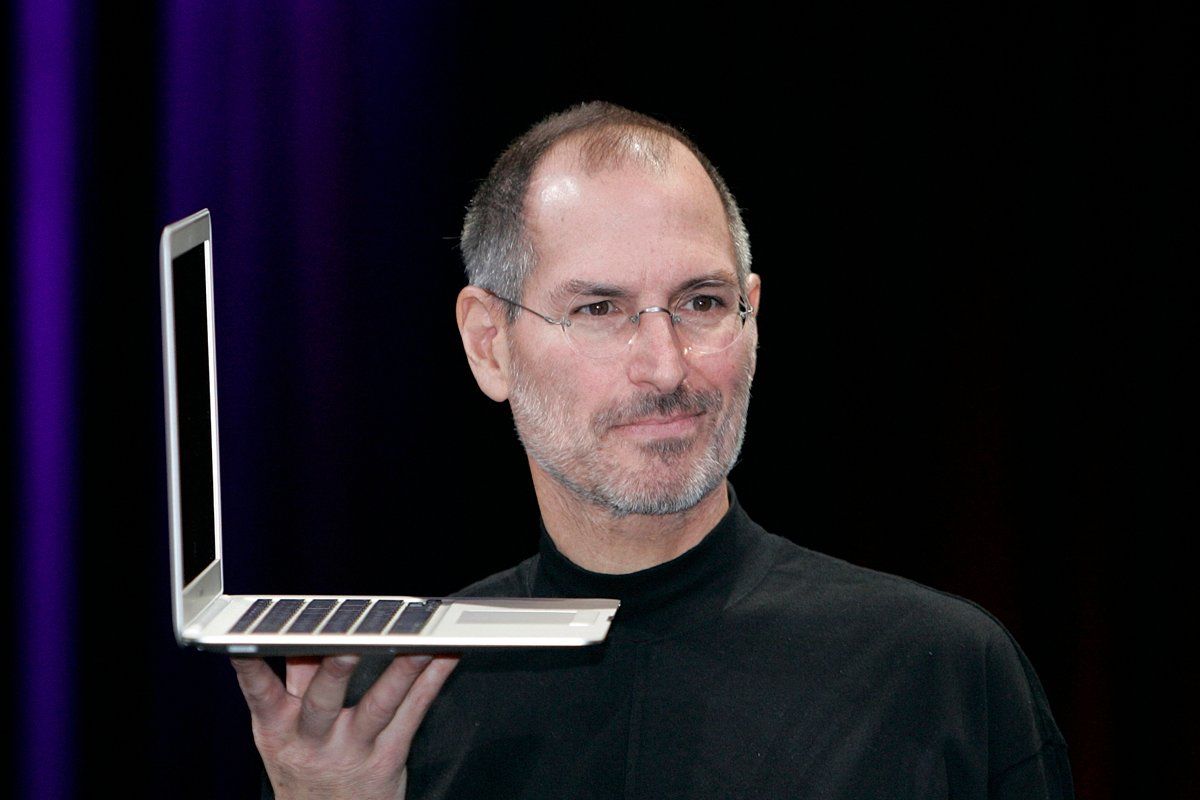
I've spent the past few years impersonating Steve Jobs online, with a blog called The Secret Diary of Steve Jobs, written in a persona that has come to be known as Fake Steve Jobs. In 2008, before Jobs went on his last medical leave but when it was clear that he was in poor health, I put the blog on hiatus. This morning, when news broke that Jobs is going on medical leave again, I posted my last item as Fake Steve and signed off.
A lot of people seem to think that I created the blog out of some personal animus toward Steve Jobs. In fact, it's quite the opposite. I think Jobs is the most fascinating person on the planet. Once, at a public appearance, I admitted to having a "man crush" on him. Who else could have done what Jobs has done at Apple? In 1997, when he returned to the company as CEO, Apple was as close to dead as a company can be. Jobs didn't just save Apple—he turned it into the hottest company in the world.
Now he's sick, and in his email to employees he's asking to be left alone: "I love Apple so much and hope to be back as soon as I can. In the meantime, my family and I would deeply appreciate respect for our privacy."
Fair enough. Frankly, I didn't need to be asked. In my final Fake Steve post I urged my fellow "filthy hacks" (Fake Steve's affectionate term for journalists) to leave Steve alone.
Sadly, I'm pretty sure that won't happen.
I'm sure there will be stories where some reporter talks to people who know Jobs—his friends, his neighbors—and tries to wheedle out some tidbit of information.
I fear there will be stories where some dirtbag (last time it was a guy from Forbes) hangs around outside bars near the Apple campus and ambushes half-drunk Apple engineers, asking them if they've seen Steve lately.
I'm sure there will also be stories where a reporter talks to cancer specialists and tries to get them to speculate on what might be wrong with Jobs this time. They'll talk about life expectancies for people, like Jobs, who have had liver transplants after suffering pancreatic cancer. They will try to make this all seem respectable. They will claim the cancer doc stories represent a kind of "teaching moment," an opportunity to explain some arcane medical stuff to the regular folk.
They will rationalize the prying story by saying that Apple is a public company and investors need—nay, deserve—this information.
Well, bullshit.
The truth is, there is no real news value to any of this stuff. The only real value to any of these stories is that they generate page views. And the guys who are doing it, whether they write for a blog or for The New York Times, know the truth of what they're doing, and they do it anyway.
If you really want to learn about cancer and liver transplants, you can go to the library. If you're an investor and really can't live with the uncertainty that today's announcement brings to Apple stock, well, sell your shares and thank Steve Jobs for the ridiculous profits you've made. If you decide to hang on to your shares, that's fine too—but don't go around claiming that your handful of shares gives you the right to pry into the private life of a sick man.
As for me, well, I'm sorry, but I just can't bring myself to snoop around about Jobs and his health.
I know his old partner and friend, Steve Wozniak. And I just can't bring myself to call Woz and ask him what he knows. I'm sorry. I know a surgeon who has worked at Stanford Medical Center, where Steve Jobs has received a great deal of his medical treatment. But I won't ask her what she's heard. For one thing, she won't tell me. For another, all the hot showers in the world could not wash that stink off me. I won't ask my friends who work at Apple what they know. I've never asked them for any inside information about Apple. We're friends. I respect that. They don't know what's wrong with their boss. They're just feeling awful.
I know the feeling. Today I'm feeling awful, too.
This article originally appeared on The Daily Beast.
Uncommon Knowledge
Newsweek is committed to challenging conventional wisdom and finding connections in the search for common ground.
Newsweek is committed to challenging conventional wisdom and finding connections in the search for common ground.
About the writer
To read how Newsweek uses AI as a newsroom tool, Click here.





